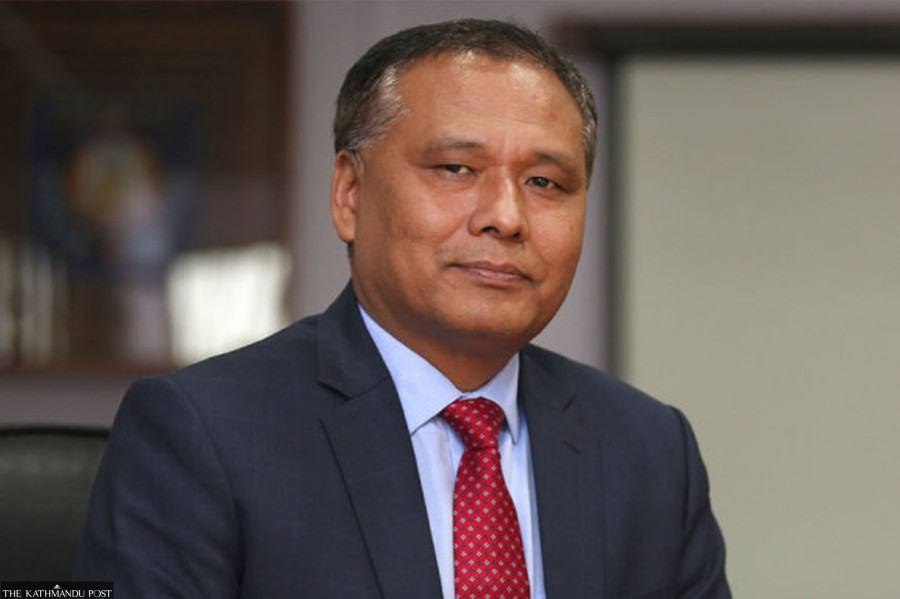Columns
Ghising’s grit, Khadka’s fall
Ghising’s dismissal may reinforce Oli and Khadka’s image as shady politicians.
Naresh Koirala
The public spat between Kulman Ghising, the recently dismissed Managing Director of Nepal Electricity Authority (NEA), and his boss, Dipak Khadka, Minister for Energy, Water Resources and Irrigation, attests to the popular perception of the KP Sharma Oli government’s dysfunctionality. Ghising, a highly educated professional engineer, was appointed the MD of NEA for the first time in September 2016 for a four-year term by then Prime Minister Pushpa Kamal Dahal, Prachanda, of the Maoist Centre.
The first stint
One of Ghising’s significant actions as MD was to stop electricity leakage and “book local businesses, who in collusion with NEA staff, were stealing the electricity meant for households, without paying a penny” (the Record, September 11, 2020). Ghising said, “My priority is ordinary people over business”. During his term in office, Ghising got rid of excruciating load shedding (power cut up to 18 hours a day) in Kathmandu, Pokhara and Chitwan. Following this, people celebrated him as the “source of light in a land of darkness”. He also expanded electricity coverage to a large swath of the country, turning “ailing, debt-ridden NEA into a profit-making entity”. Ghising resigned when his tenure expired in September 2020.
Dahal’s government fell in June 2017. After a short interlude of Sher Bahadur Deuba’s prime ministership, Oli of the Unified Marxist Leninist Party became Prime Minister in February 2018. He refused to reappoint Ghising despite popular demand; instead, he appointed Hitendra Dev Shakya five months after Ghising left office. In the checkered game of Nepali politics of corruption, betrayals and backstabbing, the Oli government fell in July 2021. Ghising’s four-year term saw three prime ministers and as many energy ministers.
Deuba became Prime Minister yet again after Oli’s fall. He transferred Shakya to an obscure government position and brought Ghising back as the MD. Deuba’s government toppled in December 2022, leading to Dahal’s comeback. Dahal was gone in about 18 months, and Oli returned as Prime Minister in July 2024.
Ghising was still serving his second term when Oli returned. Oli appointed Dipak Khadka—a Nepali Congress politician and a hydropower and real estate businessman with questionable business conduct as the Minister of Energy, Water and Irrigation. Despite an apparent conflict of interest, Oil did not require Khadka to divest from his hydropower investments. Khadka became Ghising’s new boss.
The second term
In his second term, electricity generation expanded, new transmission lines were added and electricity coverage reached 98 percent of the population. The import of electricity from India continued, but Nepal started exporting its seasonal surplus electricity to India and Bangladesh. The balance of these electricity trades was in Nepal’s favour. NEA’s finances did even better.
Besides expanding electricity generation and coverage across the country, Ghising focused on forcing large business houses to pay millions of rupees they owed to the NEA. He suspended the electricity supply to the defaulting business. Oli, known for his close affinity to big business, did not like it, creating a conflict with Oli and Khadka on one side and Ghising on the other. Oli publicly denounced the suspension and ordered the resumption of the power supply. He argued that cutting electricity would hurt the countries’ industries and the economy. Ghising protested, asking, “When ordinary households do not pay their electricity bill, their “line is cut”, why should industries be treated differently?” Ghising would not budge until Oli had his cabinet endorse a proposal to order the resumption.
Campaign of harassment
Ghising’s audacity rattled both Oli and Khadka, who are used to civil servants kowtowing to political bosses. Since Ghising’s defiance, Khadka has sought to undermine him at every turn. Over the last three months, he has sent Ghising several letters questioning why he should not be dismissed for various actions. He has publicly criticised him in Parliament and during his public speeches. The attacks were so overt that even Gagan Thapa, the General Secretary of the Nepali Congress, asked Khadka to refrain from such behaviour.
These threats of dismissal have generated public protest against Khadka and in support of Ghising. Aware that Ghising’s public celebrity status derives from his reputation as the “source of light in a land of darkness”, Khadka’s latest salvo was intended to destroy this reputation and prepare new grounds for his dismissal.
Khadka told the Parliament we owe “Thank You” to India for ridding us of load shedding, implying Ghising had nothing to do with it. The backlash for this statement was intense. He claimed that household load shedding will return, contradicting Ghising’s assurance, “Do not worry, there will be no load shedding.” As if this was not enough, he gave Ghising a zero score in his current year’s performance report.
Ghising’s scores in the previous years were 95 percent or above. There was little satisfactory explanation for why this year’s score dropped to zero. An NEA employee who did not want to be named told me, “This was part of Khadka’s strategy to fire the Managing Director. Pushing out a non-performing employee is easier than one with good records.”
Ghising is sacked
Khadka’s strategy has worked. A few days ago, a cabinet decision sacked Ghising and again appointed Shakya, an Oli favourite, to replace him. This is the same Shakya who was previously appointed by Oli and pushed aside by Deuba to bring back Ghising for the second term. At the time, the Supreme Court dismissed Shakya’s appeal against what he considered unlawful transfer by the Deuba government.
The dismissal of Ghising may momentarily placate Oli and Khadka’s ego. It may also make Oli-Khadka and the industrialists who resisted paying their dues to the NEA and went to Oli for his support feel victorious. However, it will further reinforce Oli and Khadka’s public image as shady politicians in cahoots with big business. In deciding to remove Ghising and appoint Shakya, Oli’s cabinet sided with big business, snubbed public opinion and slighted the Supreme Court. This cannot go down well with the people.
Protests against the sacking by ordinary Nepalis have erupted, and the opposition parties have joined in. Ghising has taken the matter to the Supreme Court. Where it will take us remains to be seen. Of immediate concern to millions of Nepalis is whether the hated load shedding will return. It may or may not, depending on whether Khadka decides to darken the country to prove his point that “load shedding will return”, or he decides not to force it and claims he managed to avert it because Ghising is not around. He could do anything. There is nothing our wily politicians are not capable of.




 9.93°C Kathmandu
9.93°C Kathmandu















